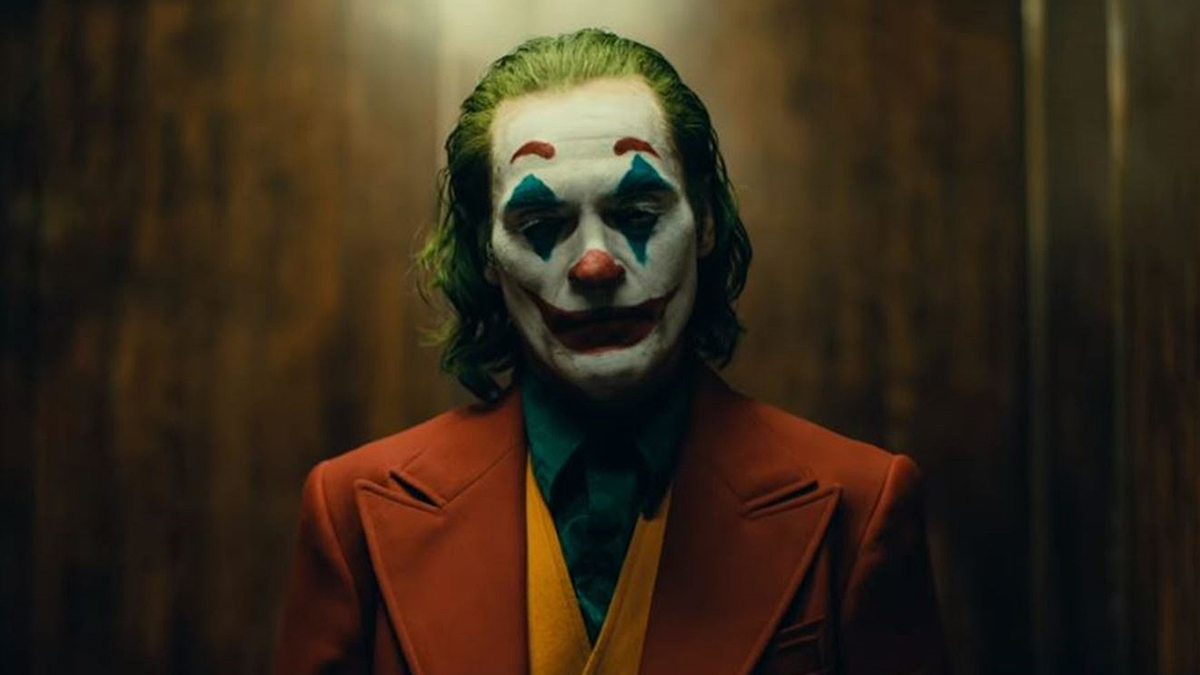“There is only one really serious philosophical question”, wrote Albert Camus. “And that is suicide. Deciding whether or not life is worth living is to answer the fundamental question in philosophy.” This is the question with which Arthur Fleck (Joaquin Phoenix) wrestles for two grim hours, in Joker.
There are multiple references to Camus in Joker. When Arthur scribbles, “I hope my death will make more cents than my life”, he is echoing the conclusion of Mersault in The Stranger that all that remained to fulfil his life was that a huge crowd would greet his execution with “howls of execration”. The stairs which Arthur trudges every day recall the “futility and hopeless labor” of The Myth of Sisyphus. Arthur repeatedly pantomimes shooting himself.
Such subtleties seem lost on a host of critics who’ve greeted Joker with howls of execration. Idiotic blitherings about the Bad Orange Man have vied with wishful-thinking predictions of Joker-inspired mass shootings. Which is all the more face-palmingly stupid for the fact that Joker is, in fact, a remarkably a-political film.
To be sure, like Sydney Lumet’s Network (1976), Joker depicts an uncaring, dystopian metropolis which is one shout of “I’m mad as hell, and I’m not going to take this anymore!” from exploding into mass violence. But, also like Network, it doesn’t apportion all blame to any one ‘side’, apart from depicting a cynical and exploitative mass media. While the mega-rich like Thomas Wayne are arrogant assholes, ordinary people are no better. Arthur is as beat-down by his fellow clowns as he is by the rich. The rioting mobs are a melange of Antifa and Anonymous, and a briefly-glimpsed effigy of villain Thomas Wayne is a dead ringer for Trump.
Joker draws from a series of cultural touchstones from the late 70s (Taxi Driver, Network) and the 80s (The King of Comedy, subway vigilante Bernhard Goetz, politician Budd Dwyer). Thus, while it is set explicitly in 1981 (look carefully at the theatre marquees), it occupies a kind of “no-time” between the despair of the 70s and the exuberance of the 80s). It should also be noted that director Todd Phillips’ first movie was a documentary on G. G. Allin, the brutally transgressive punk rocker whose shows were a nihilistic theatre of the grotesquely absurd.
Ultimately, though, it transcends being a mere meta-textual grab-bag of influences. Most especially by the intensity of Joaquin Phoenix’s extraordinary performance.
Phoenix’s portrayal of Arthur Fleck is a viscerally physical tour de force. Phoenix constantly wrenches his emaciated frame into tortured poses reminiscent of an Egon Schiele painting, and then breaks free into his sinister, signature dance routine with the fluidity of a ballet. He segues from despairing blankness to tortured grimaces. And the laugh. Easily the most iconic laugh on film since Tom Hulce in Amadeus (1984), Arthur’s discordant bray is both horrifying and pathetic. It’s the despairing sound of a clown who just cannot understand what is funny.
Arthur is bewildered and confused by the world. He is frequently unable to distinguish reality from fantasy (if there is one flaw in the film it is the unnecessary resort to Sixth Sense-style flashbacks at one point, to drive home what we’d already suddenly realised, that a key part of the story had taken place entirely in Arthur’s head).
Joker is not a happy film, and it’s not a film about superheroes in tights saving the world. It’s a film that is often not easy to watch, not because of graphic violence (while its violence is mostly off-camera, it’s still shockingly visceral), but because of its unrelenting grimness. But it is, in its way, a triumphal film.
Like Camus’ heroes Sisyphus and Meursault, Arthur Fleck discovers in the end that life really is meaningless. The little boy who believed that he indeed had a purpose in life, to bring joy and laughter, has that belief cruelly stripped away, piece by piece, betrayal by betrayal. Ultimately, he realises that life is simply absurd. Arthur’s transition to the Joker is complete when he symbolically dances his way down the stairs which had worn him down for so long.
By embracing his own absurdity – the realisation that he really is just a fleck, a mote, a mere speck in a universe empty of meaning – Arthur consciously lives out what has been imposed on him, thus making it into his own end.

